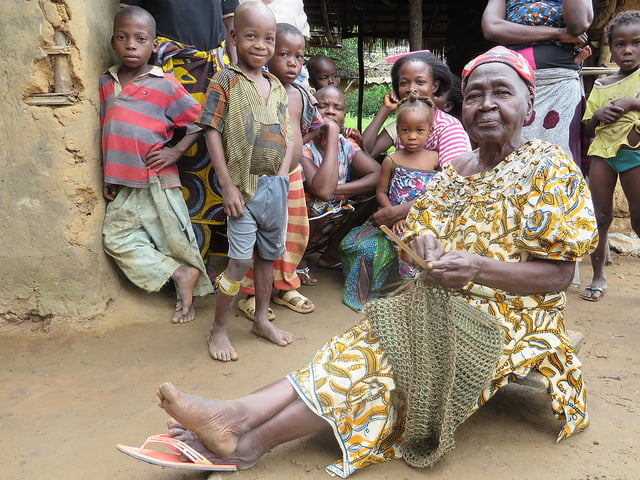The Ivorian society is moving slowly but surely towards population ageing ; in a bid to prepare for the oncoming phenomenon, it has already started adapting to the elderly’s needs, who currently live in less-than-ideals conditions.
Ivorian elders face “persistent issues of social exclusion and discrimination”
There are 913 668 people aged 65 and above in Côte d’Ivoire, according to the latest population and habitat census, taken in 2014 ; by 2018, their number will have reached 1 200 000, according to estimates. Those numbers may not seem alarming, if you consider the fact that they will still only account for 4.4% of the overall population. But this demographic group has increased by 63.4% between year 1988 and year 2007, which represents a 5% annual increase, meaning it won’t be long before Côte d’Ivoire is confronted with challenges pertaining to ageing, just like Senegal.
And those challenges are dire : the living conditions of Ivorians aged 65 and above leave much to be desired, especially in rural areas, as underlined by Koné Colette, local director of Social Affairs in Northern Abidjan : “There are a number of bedridden seniors who lead very precarious lives : no job, practically no income, they don’t have access to proper medical care, they don’t get enough food, and their cracked, uncomfortable huts are falling to ruin.“, she said in 2014, during a celebration of the local day of older persons.
She added that “Before our population can stay healthy, safe, and economically and socially active even as they grow older, we will need to put an end to persistent issues of social exclusion and discrimination.”
Côte d’Ivoire takes steps towards ensuring the elderly’s well being
Côte d’Ivoire has already started taking steps towards adapting society to ageing.

In 2013, Ivorian pension funds have started reforming to make the retirement system easier to navigate and increase the numbers of eligible workers : the General Civil Servant Pension Fund (CGRAE) and the National Social Security Fund (CNPS) coordinated their services to allow retirees to cumulate years of work under both regimes, and open pensions to a greater number of retirees.
2015 saw the creation of a Universal Health Coverage, rooted in an observation of then-Prime Minister Daniel Kablan Duncan : “Less than 5% of the population have access to social protection against health issues.” Most Ivorian citizens do not have access to medical care due to its costly nature ; this new social security system will cover 70% to 80% of policyholders’ medical expenses against a €1.50 monthly contribution.
But elderly care needs a regulatory framework before it can developped further. With that end in mind, Ministers of State, Social Affairs, Employment and Professional training met last year ; the session started with an overview of the elderly’s living conditions in the country.
Local initiatives in favour of the elderly
On a local scale, measures are also taking to improve the elderly’s living conditions ; the region of Béré recently advocated for better elderly care. Deputy director Angèle Kra said the initiative was all about providing a comprehensive picture of seniors’ living conditions and bringing about change in the region.
Those measures are signs that a collective awareness of the challenges of ageing is starting to spread, a trend on the rise in Africa, as exemplified by the project of the NGO Dis-moi (“Tell me”), who pushes for a United Nation convention in favour of elderly rights ; it is currently active in Mauritius island, off the southeast coast of the continent.
Read more : 2016 Global retirement index: adapting retirement systems to changing demographics
Published by the Editorial Staff on

